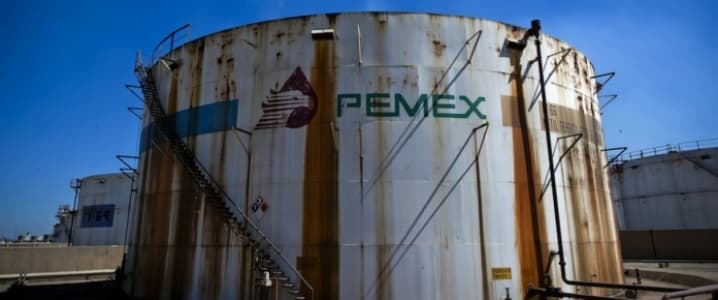Oil prices are unable to get up off the canvas, as signs of global market rebalancing continue to be errant. With the first weekly EIA report of the month on deck tomorrow, hark, here are five things to consider in oil markets today:
1) Saudi Aramco officially took full control of the Port Arthur refinery yesterday, after breaking up its joint venture with Shell and separating the assets. Saudi Aramco assumes full ownership of the JV name, Motiva Enterprises.
Port Arthur is the largest refinery in North America with a capacity of 600,000 bpd, and the deal means Saudi Aramco maintains a solid foothold for its crude in the U.S. market. As for flows to the refinery, we can see from our ClipperData they should not change much, given Saudi grades already account for over 70 percent of imports:
(Click to enlarge)
2) In terms of the OPEC / NOPEC production cut deal, Mexico appears to be trailblazing from an export perspective. The Latin American nation committed to cut crude production by 100,000 bpd, and we can see from our ClipperData that Mexican export loadings are down by ~200,000 bpd from last October's reference date.
That said, this does not necessarily mean Mexico is complying; better than expected refinery utilization in the first quarter of the year has led to higher domestic crude demand (something we see affirmed by slowing Mexican product imports). We can also see from the chart below that loadings for North America have been rebounding since late last year:
(Click to enlarge)
3) It is no secret that Saudi Arabia is looking to double its global refining capacity to 10 million barrels per day by mid-next decade, but its immediate focus is on boosting its sales and purchases of gasoline, diesel and other products to over 2mn bpd. It currently trades 1.5 million barrels of products every day.
As our ClipperData illustrate below, Saudi Arabian gasoline and distillate export loadings into Asia are averaging close to 400,000 bpd since the beginning of last year. Asia is the leading destination for Saudi Arabian products, accounting for well over a third of flows, while Northwest Europe is in distant second place.
(Click to enlarge)
4) According to the IEA, global oil discoveries fell to a record low last year, while project approvals were at their lowest level in more than 70 years. Conventional projects approved fell by 30 percent in 2016 on the prior year to 4.7 billion barrels, while discoveries declined to 2.4 billion barrels. Related: Czech Republic Aims To Cash In On The Lithium Boom
Investment into conventional offshore projects has been hit the hardest; only 15 percent of projects approved in 2016 were offshore, compared to an average of over 40 percent from 2000 to 2015. The IEA projects that exploration spending is set to drop again this year for a third consecutive year, down to half that spent back in 2014.
(Click to enlarge)
5) Finally, my latest feature on NPR's Texas standard can be found here. We discuss the rise of oil and gas theft in Mexico. Here are five things to know about the situation:
--Mexico loses over $1 billion each year due to fuel theft
--1.5 million gallons of fuel are stolen every day
--In 2009, there were under 500 illegal taps. In 2016, there were nearly 7,000 - nearly a 15-fold increase
--Pipeline theft in Mexico rose 52 percent in 2015
--Nigeria sees the worst oil theft, with it losing over $1 billion a month in recent years
By Matt Smith
More Top Reads From Oilprice.com:
- ‘’OPEC Has Failed’’
- Saudis Further Discount Crude To Asia
- Saudis To Boost Oil Export Capacity To 15 Million Bpd In 2018






















